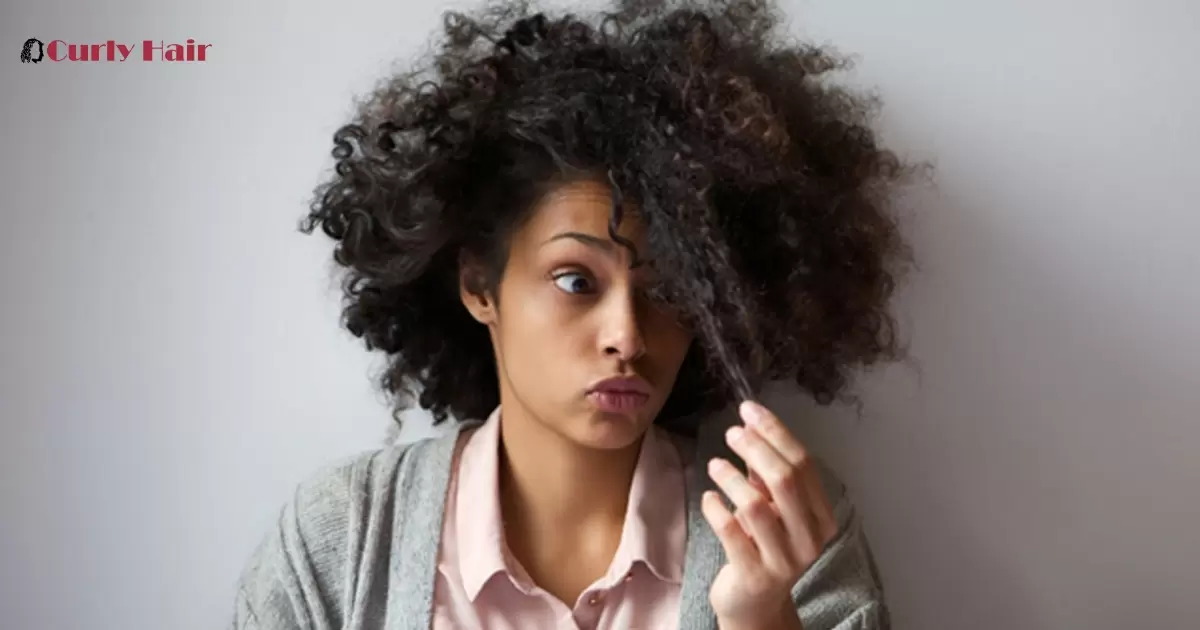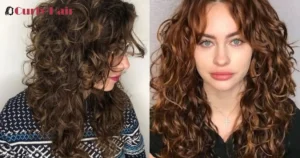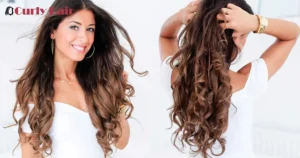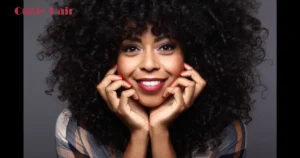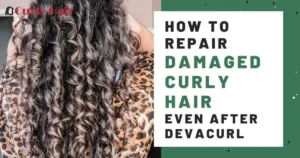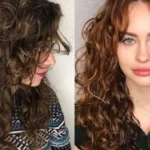Curly hair often appears frizzy due to its unique texture. The hair cuticles are raised, causing strands to separate. Friction and humidity make frizz worse. Proper hair care techniques can help tame frizz. Using the right products and avoiding harsh treatments is crucial.
Are you tired of dealing with unruly, frizzy curls? You’re not alone. Many curlies struggle with the constant battle against frizz. Why is my curly hair always frizzy, you might ask. The answer lies in your hair’s unique structure and how you care for it. With the right knowledge and techniques, you can tame those unruly locks and embrace your beautiful curls.
Understanding why curly hair becomes frizzy is key to managing it. Frizz occurs when the hair’s outer cuticle layer is raised. This allows moisture to pass through, causing strands to swell and separate. Proper hair care can help smooth the cuticles and prevent frizz. Keep reading to learn simple tips and tricks to achieve frizz-free, defined curls.
Key Takeaways
- Curly hair is prone to frizz due to its texture and moisture retention.
- Factors like hair care routines, humidity, and hair type influence frizz.
- Using moisturizing products and protective techniques can help manage frizz.
- Embracing your natural curls and adopting a tailored hair care routine is key.
1. Frizzy Hair Causes
| Cause | Description |
| Lack of Moisture | Dry hair lacks the necessary oils to keep the hair shaft smooth, leading to frizz. |
| Humidity | High humidity causes hair to absorb excess moisture from the air, leading to frizz. |
| Damaged Hair Cuticles | Rough or raised cuticles can’t effectively lock in moisture, causing frizz. |
| Overuse of Heat Styling Tools | Excessive use of heat can damage the hair cuticle, leading to frizz and breakage. |
| Harsh Hair Products | Products containing sulfates and alcohol can strip the hair of moisture, causing frizz. |
Humidity makes your hair frizzy. Moisture in the air disrupts the cuticle layer. This leads to unwanted texture changes. Damaged hair contributes to frizz. Heat styling, chemical treatments, and rough handling weaken hair. Damaged hair cannot retain moisture. Dry hair is more prone to frizz. Lack of hydration causes cuticles to lift. This allows moisture to enter, causing frizz.
Genetics also play a role in frizz. Some hair types are naturally frizzier. Curly hair straight often struggles with frizz. Poor hair care habits worsen frizz. Using the wrong products leads to issues. Overwashing and rough drying make it worse. Healthy hair care routines can minimise frizz.
2. Humidity’s Role in Frizz

Humidity affects curly hair by increasing the moisture content in the air. This extra moisture makes hair swell and lose its natural shape. As a result, individual strands lift and create frizz.
Curly hair is more porous, so it absorbs humidity easily. The cuticle opens, and moisture enters, disrupting the curl pattern. This process causes the hair to become frizzy and difficult to manage.
3. Hair Product Buildup
Hair product buildup happens when residue from shampoos, conditioners, and styling products accumulates. This residue can weigh hair down, making it look dull and lifeless. It can also cause scalp issues, such as itchiness and irritation. To prevent this, use a clarifying shampoo regularly.
Overuse of hair products can lead to buildup, affecting hair’s health and appearance. Natural oils from the scalp can also mix with product residue, causing greasy strands. Regular washing and deep cleaning treatments can help maintain clean and healthy hair. Choose lightweight products to avoid buildup.
4. Dry Hair and Frizz
Dry hair often leads to frizz. The lack of moisture in your hair makes it brittle. Brittle hair breaks easily, causing frizz.
Using harsh shampoos strips natural oils from your hair. This makes it dry and frizzy. Opt for sulfate-free shampoos for better moisture.
5. Heat Styling and Frizz
Heat styling can lead to frizz. High temperatures damage the hair cuticle, causing it to lift. This allows moisture to escape, making the hair dry and frizzy.
Using heat tools often worsens the issue. Repeated exposure to heat strips natural oils. This leaves hair vulnerable to frizz and breakage.
6. Haircut and Frizz

Choosing the right haircut can help manage frizz. Layered cuts reduce bulk and promote curl definition. Shorter styles, like bobs, can limit frizz by reducing hair’s weight. Textured ends blend curls and minimize frizz. Consult a stylist experienced with curly hair for the best results.
Avoid blunt cuts that add bulk to curls. Opt for dry cutting to see the curls’ natural shape. Regular trims keep hair healthy and prevent split ends, reducing frizz. Proper hair care with moisture-rich products enhances the effectiveness of a good haircut. Find products that suit your specific curl type.
7. Hair Brushing and Frizz
Brushing curly hair can cause frizz. It disrupts the curl pattern, leading to a messy look. To avoid this, use a wide-tooth comb on damp hair. This helps keep the curls intact and reduces frizz.
Using the right brush matters. Avoid brushes with metal bristles. Opt for those with natural or boar bristles. They help distribute oils evenly, reducing frizz. Brushing with the right tools and technique keeps hair smooth and manageable.
8. Hair Towel Drying and Frizz
Using a regular towel can cause frizz in curly hair. The rough fibres lift the hair cuticles, making them look frizzy and unmanageable. Instead, use a microfiber towel or a soft T-shirt to dry your curls gently.
Pat your hair dry rather than rubbing it. This method helps maintain the hair’s natural shape and reduces frizz. Be gentle and let your hair dry naturally whenever possible for best results.
9. Hair Serum and Frizz
Hair serums are great for controlling frizz, adding shine, and protecting hair from heat damage. They work by coating the hair shaft to smooth down the cuticle, reducing the appearance of frizz. Using a pea-sized amount on damp or dry hair can help achieve a sleek, frizz-free look.
When applying hair serum, focus on the mid-lengths to the ends of your hair to avoid weighing down the roots. It’s best to start with a small amount and add more if needed. Remember, a little goes a long way with hair serums. Choose a serum that suits your hair type for the best results, whether you have curly, straight, or wavy hair.
10. Hair Type and Frizz
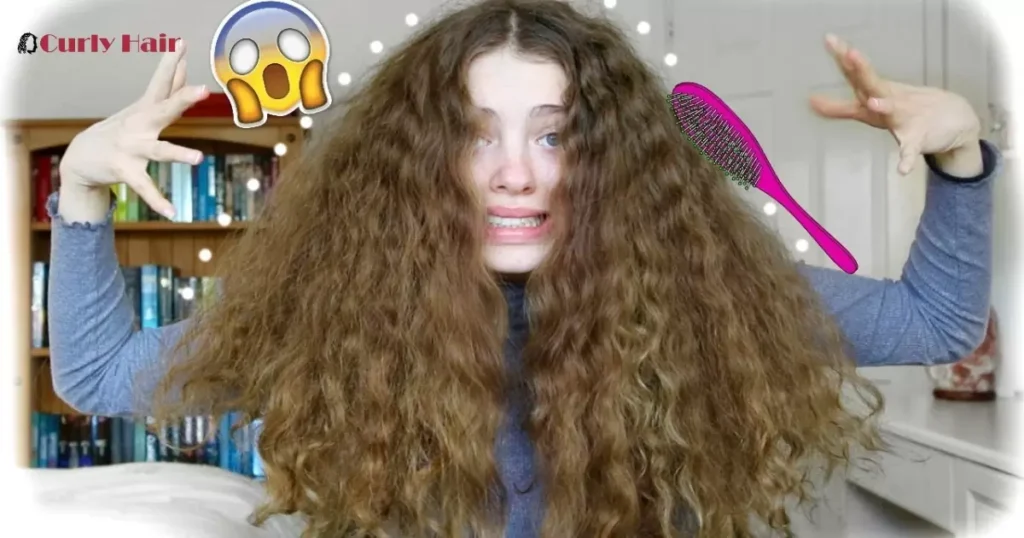
- Different hair types have varying levels of frizz due to their natural texture and moisture retention.
- Curly hair tends to be more prone to frizz because the natural oils produced by the scalp have a harder time travelling down the twists and turns of the hair shaft.
These factors can lead to dryness and frizz, especially in curly hair types, making them more susceptible to frizz.
Fine Hair and Frizz
Fine hair is more prone to frizz because it has a smaller diameter, making it easier for moisture to penetrate the hair shaft and cause frizz. This hair type lacks the thickness and structure to weigh down the hair and keep it smooth, resulting in frizz. Proper hydration and using lightweight products can help manage frizz in fine hair.
Coarse Hair and Frizz
Coarse hair is more prone to frizz due to its larger diameter, which makes it harder for natural oils to coat and moisturize the strands properly. This lack of moisture can lead to the hair becoming dry and frizzy, especially in humid or dry conditions. To combat frizz, it’s important to use hydrating products and techniques that help seal moisture into the hair shaft.
Wavy Hair and Frizz
Wavy hair falls between straight and curly, often experiencing frizz due to its texture.
The hair cuticle is more lifted in wavy hair, allowing moisture to escape easily, causing frizz.
Using products like serums or creams can help smooth the cuticle and reduce frizz in wavy hair types.
Why Is My Hair Frizzy When Wet?
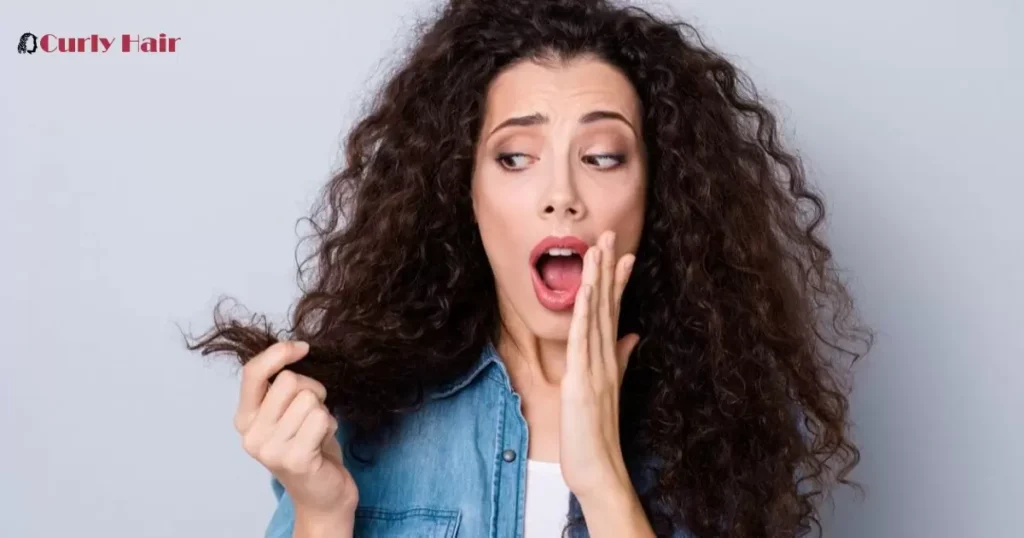
When hair is wet, the hair shaft swells, causing the outer layer, the cuticle, to lift. This lifted cuticle allows moisture to enter the hair shaft, causing it to swell further and leading to frizz. Additionally, wet hair is more fragile and prone to damage, which can contribute to frizz.
To minimize frizz when hair is wet, use a wide-tooth comb to detangle gently, starting from the ends and working your way up. Avoid rubbing hair with a towel; instead, gently squeeze out excess water and wrap hair in a microfiber towel or a cotton T-shirt to absorb moisture without causing friction.
How To Keep Curly Hair From Frizzing While Sleeping?
- To prevent frizz while sleeping, try sleeping on a satin or silk pillowcase to reduce friction and moisture loss.
- Another method is to pineapple your hair, gathering it loosely at the top of your head and securing it with a scrunchie or hair-friendly elastic.
These techniques help maintain your curls’ shape and reduce friction, resulting in less frizz in the morning.
Frequently Asked Questions
Why is my straight hair frizzy after washing?
Straight hair can become frizzy after washing due to factors like humidity, lack of moisture, or damage from heat styling.
Why is my hair so frizzy after I shower?
Your hair might be frizzy after showering due to the moisture in the air causing the hair shaft to swell, leading to frizz.
Why does my hair get curly when wet?
When hair gets wet, the hydrogen bonds in the hair shaft loosen, causing it to swell and take on a curly or wavy appearance.
Conclusion
In conclusion, understanding the reasons behind frizz in curly hair is the first step towards managing it effectively. Factors like hair type, humidity, and hair care routines play crucial roles in frizz formation. By choosing the right products, such as moisturizing shampoos and conditioners, and using techniques like the LOC method, you can help combat frizz and keep your curls defined.
Protecting your hair from friction and moisture loss, especially while sleeping, can make a significant difference in reducing frizz. Using satin or silk pillowcases and pineapple-ing your hair are simple yet effective ways to prevent frizz overnight. Embracing your natural curls and adopting a hair care routine tailored to your hair type can help you achieve beautiful, frizz-free curls.
